Sándor Zán Fábián, Bishop of the Reformed Church in Transcarpathia, Ukraine, has served as pastor of the reformed congregation in Mezővári for twenty-five years. The war and armed conflict will change the life of the region forever, including this small village. Since the outbreak of the war, he has been working continuously, spending his days helping those in need, including refugees and internally displaced persons. In the shadow of historical events, we talked about his family, the history of the region, his being reformed and his personal faith.
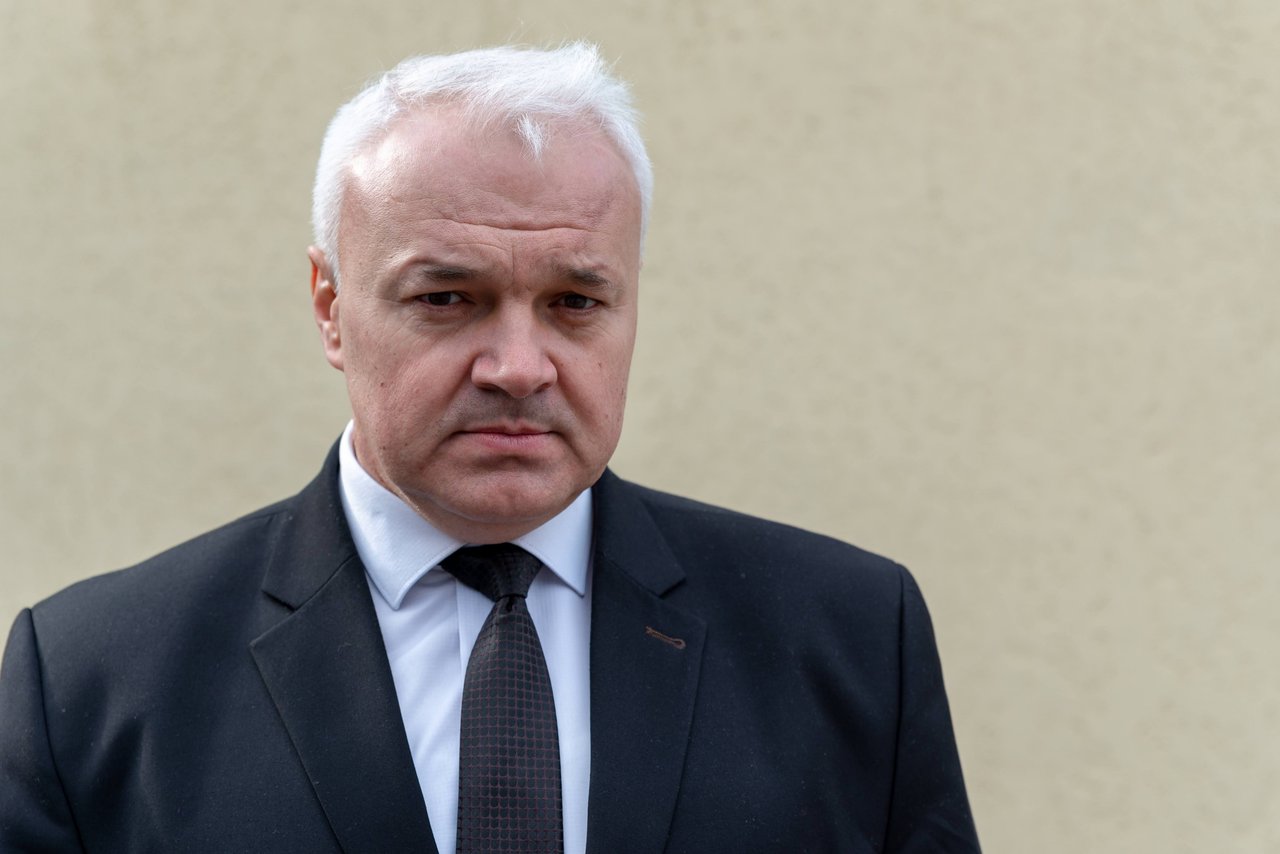
Bishop Sándor Zán Fábián, head of the Reformed Church in Transcarpathia, Ukraine
Your whole life has been linked to Transcarpathia, Ukraine, from birth.
I was born in Ugocsa County, Transcarpathia, as the third child in a small Ruthenian village, Ruszka Dolina. By the time I was born, my brothers and sisters were already married, as one sister was twenty years older than me and the other eighteen, so I grew up with their children, my parents' grandchildren. I went to Ukrainian school in Mátyfalva and then I graduated from high school in Szőlősvégardó. After the studies in theology in Debrecen, I returned home to Transcarpathia in 1996, more precisely to the village Mezővári, and started to work as a pastor. I live here with my wife Judit Fábián. Our four children were born here.
Your name is Sándor Zán Fábián, your wife's name is Fábián Judit. This is cannot be a coincidence.
Indeed, my wife and I have taken each other's names, which is not customary in Transcarpathia, but for me it is an important expression of a very serious, deep feeling that I love her so much. It is a terrible pain for me that my family cannot be with me because of the war. They left for Hungary, which eases my mind because they are safe. The children are quite grown up, but the youngest is only six and we don't know if he will ever have the chance to attend our little „Fairy Garden” Kindergarten here.
What was the turning point I your life that inspired you to dedicate your whole life to the ministry in God’s service?
The perception of God's Word. At a youth meeting I embraced and understood that Jesus Christ was my Savior, which was a complete turning point in my life. After this experience only one question remained, namely how to serve Him. The verse from the Gospel of John that transformed my life was the parable of the vine and the branches: “He cuts off every branch in me that bears no fruit, while every branch that does bear fruit he prunes so that it will be even more fruitful [...] If you do not remain in me, you are like a branch that is thrown away and withers; such branches are picked up, thrown into the fire and burned". For me, the words of Jesus meant that I could not take the death on the Calvary as granted, as if would have deserved it, but I shall serve out of gratitude, and proclaim the gospel that I had experienced and understood to those around me. This is the turning point in one's life, there is no other. But how does this become a lifelong commitment?
My pastor, Gábor Homoki, spoke to me in my hesitation. "Have you ever thought about serving God?" he asked. I answered him honestly, "Not yet."
It was after this conversation that I read the mentioned Bible verse: “such branches are picked up, thrown into the fire and burned”. I knew that if I didn't serve him, it would have been the end for me, it would have been like hell. It is more important than anything that I abide in Him with my will, with my desires, and I become and remain a servant of Christ. That is what I believe still today, and I have no other testimony but this.
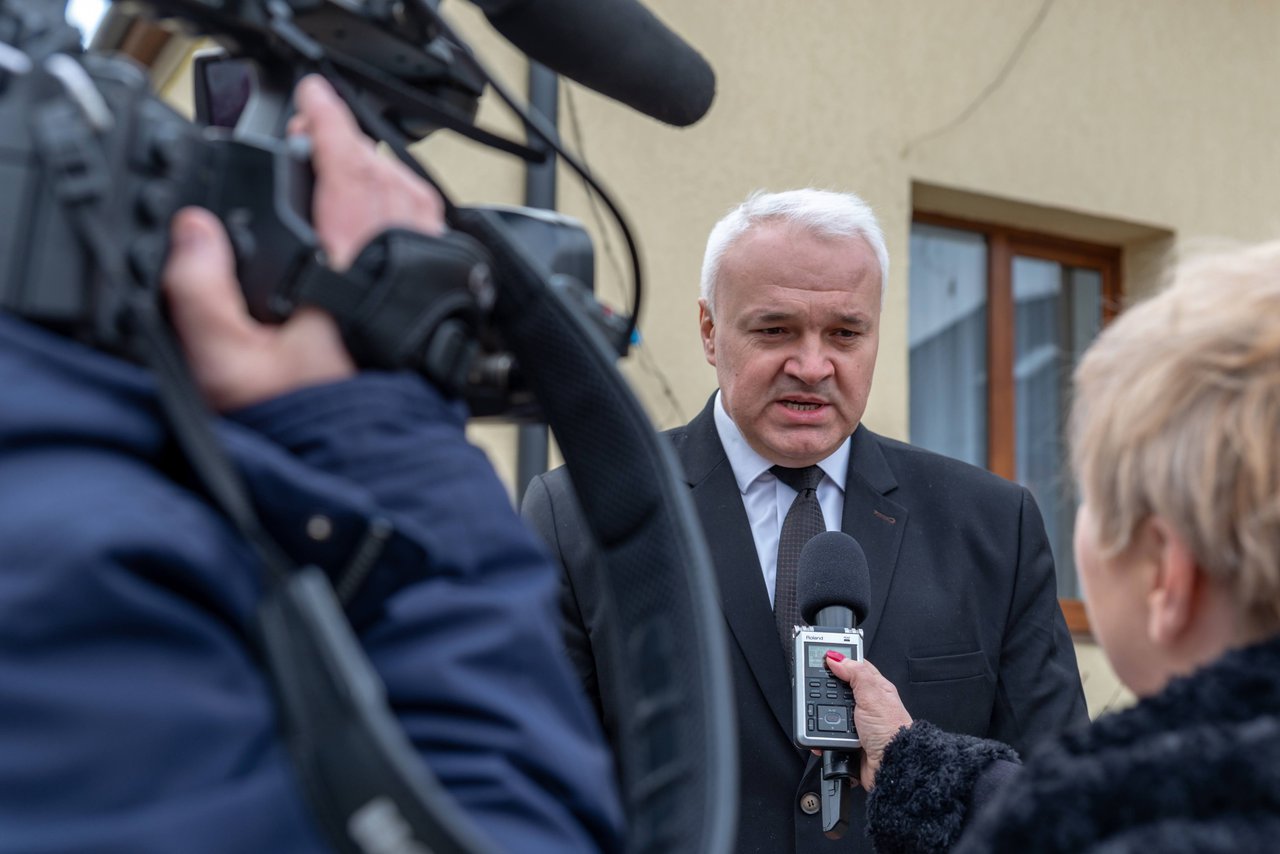
Has the controversial Ukrainian legislation affecting national minorities influenced the current situation?
The laws passed seven or eight years ago, or last year's law on public education, which deprives national minorities of the opportunity to learn in their mother tongue, have had a negative impact on the population of eastern Ukraine and on all minorities. Behind-the-scenes political wrangling has resulted in restrictions of rights that were granted earlier, and all this led to hostilities. We should not deny this saying that we were not that harmed. Yes, all this did hurt us. Still, I have many Ukrainian friends and colleagues and I have always been able to put aside and forgive offences and grievances, thank God.
This is only possible because of the faith in the death of Jesus Christ on the cross. You can't say anymore that this is the way I am or hide yourself behind the claim that this is your temper. I know that the Father forgave me for Jesus' sake, therefore I’m ready and willing to forgive others every day. I have also learned to present apologizes. The obstacle to blessing, to grace, is anger, which turns into transgression. It is present between brothers and sisters, between spouses, it appears in every human relationship. Our community life, our family life, depends on willingness to accept God's grace and forgive others.
I have experienced so many wonders here. The current situation, the past days, the past seven years have not been easy, but God has been with us, and I believe that he is with us today and will remain with us tomorrow.
In 1991, Ukraine became an independent state. How did the life of the Reformed Church in Transcarpathia change after the fall of the Soviet Union?
Before the dissolution of the Soviet Union, from 1988 onwards, the faithful pastors of Transcarpathia were preaching the Word of God with great power. The elders who had survived the suffering of the Stalinist forced labour camps were credible, and when the time came, God brought about by His Spirit the revival in the church. The hearts of thousands of young people were touched.
It was In 1989, in Tiszanagyfalu, Hungary, that I heard the living Word of God for the first time in a way that deeply touched and moved my heart and soul. Unfortunately, at that time I could not make up my mind, I was looking for excuses, I was not ready to follow Jesus. But I am grateful that God gave me another chance and in 1990 I made a conscious decision to follow Jesus. In the same year I was already a student of theology in Debrecen.
At that time the church life was constantly renewed through the ministry of older pastors who were truly dedicated to the Bible. The church, which had nothing, suddenly got church buildings back and began to recover. The faithful came, the parishes were reclaimed, which was not an easy process at all. Thirty years after, we still struggle with the fact that not everything we once had have has been restituted; church buildings, parishes and other facilities. But the church has recovered thanks to evangelisation. For several years in a row, eight or fourteen young people a year decided to pursue theological studies.
In the youth work, in worship, we had no beamer, nothing. We wrote the youth songs in notebooks by hand, and we were ready to pen all the verses all night and then learning them all without scores by heart. We praised God. The church today is still experiencing the blessings of that revival over thirty years ago. Many, many pastors, over a hundred religious teachers, almost all of them started then, and are now retired. Mothers joined the work, because their most important mission was to teach the name of Jesus to children who grew up in atheism.
And the church was experiencing miracles. I am endlessly grateful that I experienced in this church body, among the Reformed people of Transcarpathia, that God loves us. We never had Reformed schools, now we have them, and they are almost thirty years old. Our kindergartens, which did not start with the current kindergarten planting program of the Hungarian government in the Carpathian Basin, but with the Roma mission, are still now operating, and the number of congregations was raised from 89 to 108. God has granted us progress, we have been able to build Reformed churches in villages where there never was one, such as Ujakli, for which we wanted to give thanks this year.
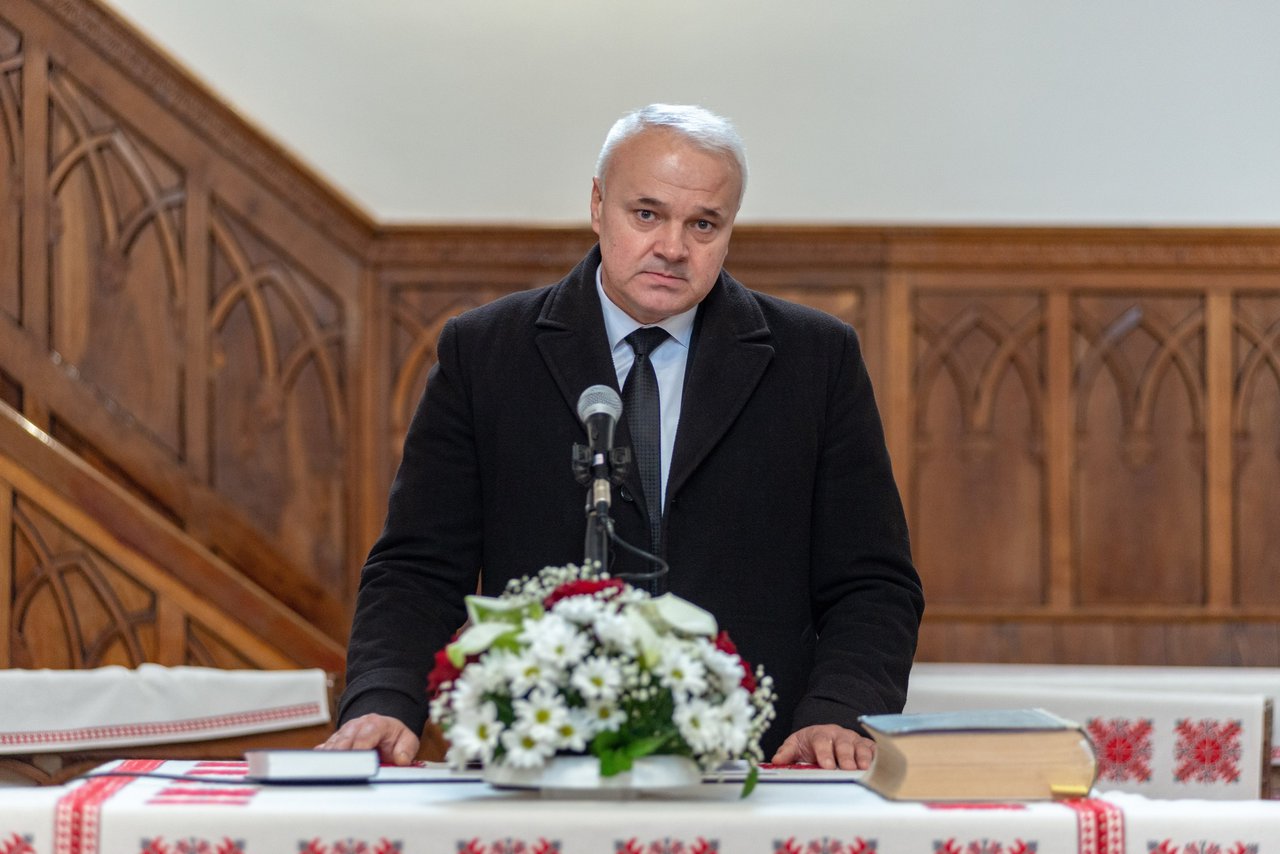
There was Russian intervention already in 2014 in Ukraine. Did it have an impact on Transcarpathia?
The news of the war scared many people, they fled the country massively and never came back. These challenging years had a bad effect on us. From then on, the Hungarian population began to decline and has been visibly weakened. In our congregation, we hold an annual homecoming service, dedicating the whole day to calling home those who have left for Hungary, Western Europe or all over in the world. We want them to know that we see them as they would have left Transcarpathia only temporarily, and that one day they will come home, reoccupying their parents' and grandparents' houses, their own property.
In this war situation, when hundreds of thousands of people are fleeing, it is mainly the elderly who are staying at home. How can you help them?
Already since 2014, the care for elderly has been a huge challenge for us in Transcarpathia. We set up a home care service for the elderly, and we are now taking care of people in several municipalities. This work will increase significantly. I have just visited a disabled and deprived person in the village and brought him a food parcel and money as support. The disadvantaged, the elderly, who did valuable work during the time of communism, now receive a pension of less than 100 Euros a month, and they are staying with us.
I have no idea right now how I will be able to build the team and assure the staff who will be visiting them. We don't know what the future will bring, and we have a lot to do. We understand young people of all nationalities who have fled the war. I would very much like to see this turn around and young people return home. But I am aware that in a peaceful and safe country, where no one has to suffer because of their nationality, life is easier than in Transcarpathia.
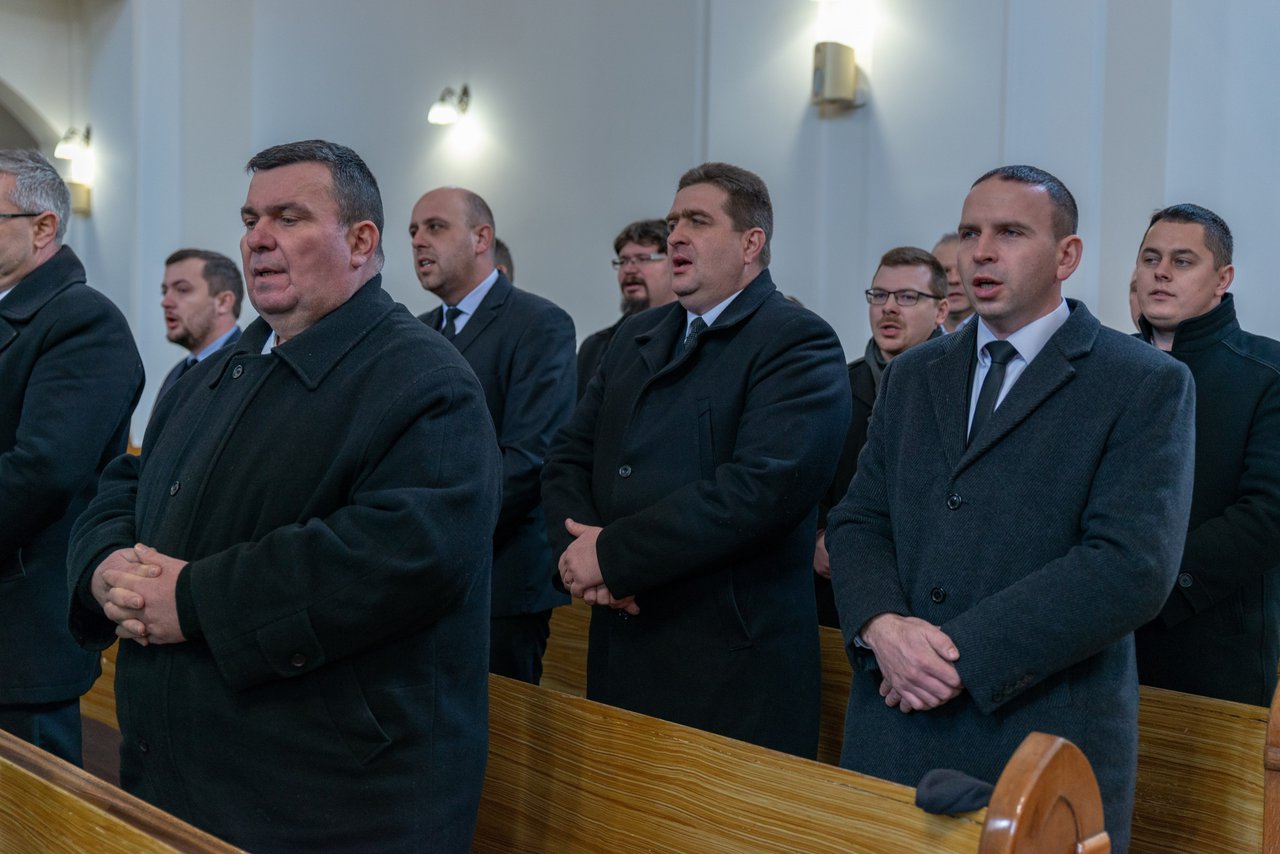
Pastors of the church who remained faithfully in Ukraine
Please tell us, how your Church has developed!
When the Soviet Union collapsed, we had twenty or thirty pastors, but from 1996-1997 the number increased to eighty. A new generation came into the ministry, who studied in Hungary; in Debrecen, Sárospatak and Budapest. Now we are slightly fewer, seventy-one. In recent days, no senior pastor has left his or her congregation.
I thank them for their faithfulness in organising and carrying out the work among the refugees, in keeping together, encouraging and caring for those who have been left behind, and in preaching the Gospel.
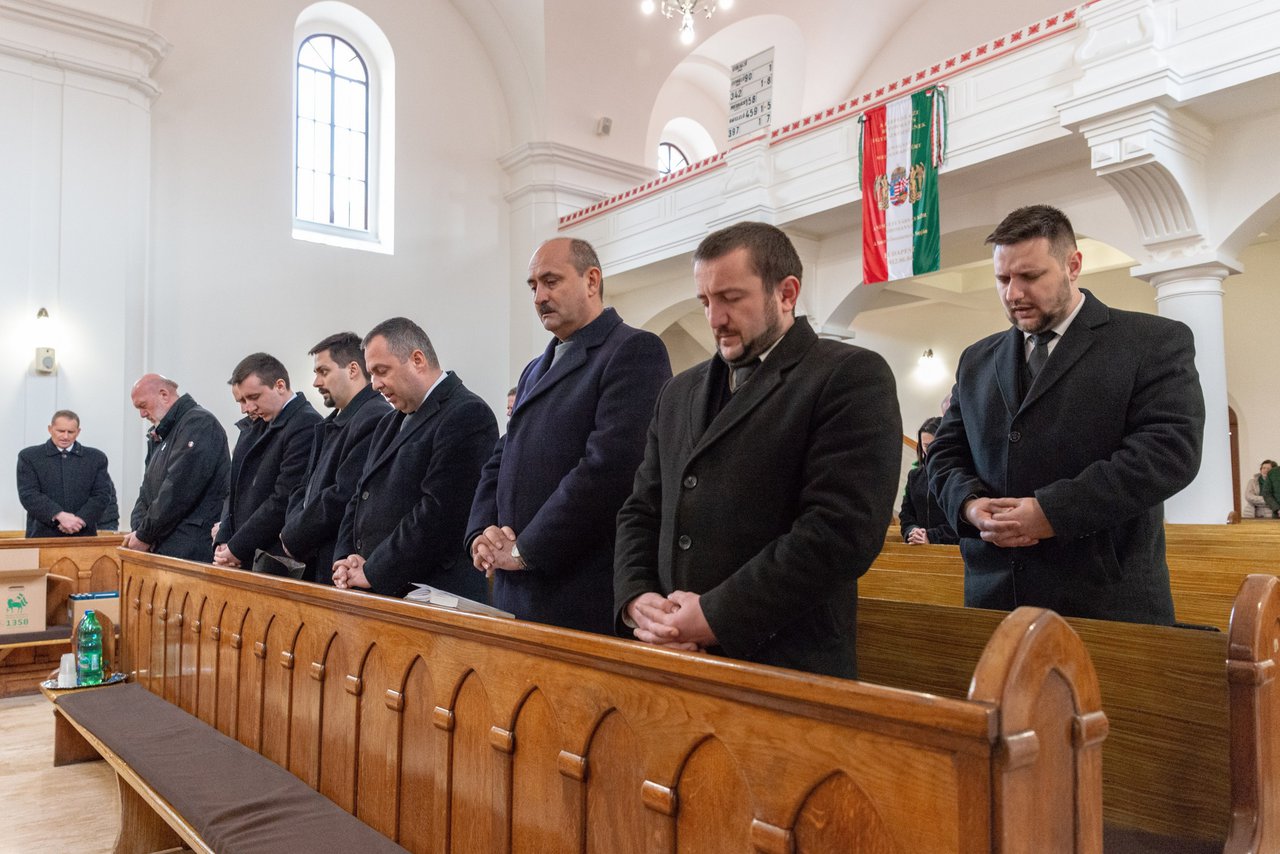
In the Gospel of Luke we read these topical verses, " When you hear of wars and uprisings, do not be frightened.... Nation will rise against nation, and kingdom against kingdom... And so you will bear testimony to me." (Luke 21:9-10.13) As a spiritual leader of the reformed community, how can you bear witness?
The Transcarpathian Reformed Church tries to be biblical and Gospel centred in all its activities; in receiving refugees, includes those with whom we do not fully agree; who put their own nation above other nations. But this is not the point in these days. If someone is on the street, they need shelter, if someone is hungry, they need food. This is a form of witness and mercy.
The other ministry is to preach the Gospel both to Hungarians and to Ukrainians who found refuge here, because God has entrusted us the ministry of reconciliation. In the jubilee year of the reformation, the Hungarian and Ukrainian Bible Societies joined forces and published a Hungarian-Ukrainian New Testament, which we can now use when we preach the Gospel. God is asking us to settle our relationship with Him, because reconciliation with God in Jesus Christ leads to reconciliation with the people. That is attitude we try to persevere. Church members are helping at the border crossings, bringing hot tea and sandwiches. These are signs of love.
But we have also been entrusted the proclamation of the Word of God, and we want to openly witness that motivation of what we do and who we are is faith in Jesus Christ our Saviour. Preaching the Gospel is the most important thing now, not only to heal wounds, not only to ease the pain of mourning, but also to stop blind anger, which unfortunately is so much present here. Many people come to Transcarpathia, some go on, but thousands more stay here. I hope that in this situation people are more open to the God’s Word. Without God, diplomacy also fails. We see that it has ended up in war. Without God, this world is not only godless, but it is becoming inhuman, bringing death and damnation. The verses quoted from Luke's Gospel must be taken very seriously and we must not wasting time but turn to God, repent, pray and open our hearts to Jesus. Still today!
Sándor Fábián Zán was elected Bishop of the Reformed Church in Transcarpathia in 2007, as the youngest church leader in Europe, having previously served as a deputy to the Bishop. He is the senior pastor of the Reformed congregation in Mezővári and the father of four children.
Peace Is The Most Precious Treasure
Bishop Sándor Zán-Fábián, head of the Reformed Church in Transcarpathia, Ukraine, calls for prayer for peace in the country and stands for the peacful co-existence of all nationalities and relgious communities of the country. We asked him about the consequences of the critical situation, how much it impacts the life of the community in the Western part of the country.